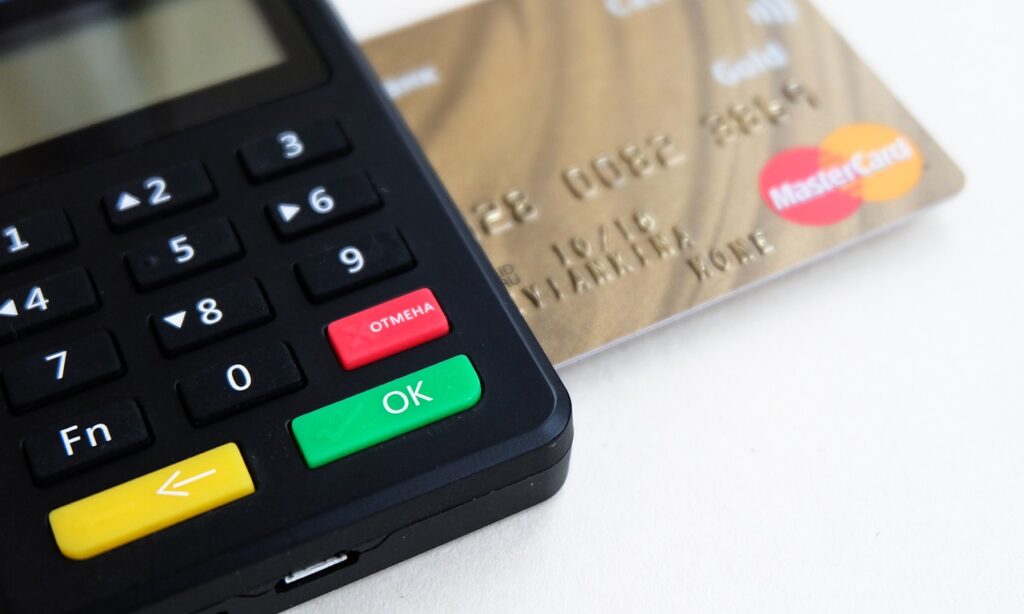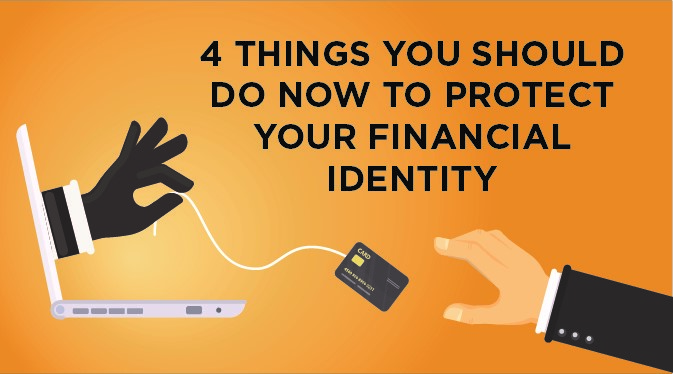
In today’s digital world, your financial identity is one of your most valuable—and vulnerable—assets. With identity theft on the rise and data breaches occurring daily, protecting your finances isn’t just about passwords and PINs—it’s about securing your future. At Paradigm Life, we believe that long-term wealth begins with protection. That’s why the Perpetual Wealth Strategy™ is built on three foundational pillars: Protection, Cash Flow, and Wealth—a system designed to help you stay in control, even in uncertain times.
Financial identity protection is no longer optional. It’s an essential step in building a personal economy that’s resilient, private, and future-focused. Let’s explore four smart, proactive ways to defend what matters most.
1. Strengthen Your Digital Vault
Your financial identity starts with how you protect your online accounts. In today’s world, most of your important financial activity happens online—from banking and investing to insurance and shopping. That’s why your first line of defense is your digital vault.
Key Actions to Protect Your Financial Identity
To keep your financial identity safe, take these simple but powerful steps:
- Use strong, unique passwords: Mix letters, numbers, and symbols. Don’t use the same password for more than one account.
- Try a password manager: These tools create and store complex passwords so you don’t have to remember them all.
- Turn on two-factor authentication (2FA): This adds a second layer of security by requiring a code or app to log in.
Why This Matters
Think of your passwords as the keys to your home. If someone steals them, they can walk right in. The same goes for your digital accounts.
Here’s how protecting your digital vault helps:
- Stops unauthorized access to your bank and investment platforms
- Keeps your personal and financial details private
- Prevents your identity from being used to open fake accounts or loans
With the right digital habits, you reduce your risk and take control of your financial identity—and that’s a major step toward long-term security.
2. Scrutinize Every Statement
Protecting your financial identity means staying aware of what’s happening with your money. One of the simplest but most powerful habits you can build is checking your financial statements regularly. This keeps you one step ahead of fraud and helps you stay in full control of your personal economy.
Key Actions to Strengthen Your Financial Identity
Make these steps part of your routine:
- Check your bank and credit card statements often: Look line by line for anything that seems off—even small amounts.
- Set up account alerts: Many banks and apps let you get texts or emails for unusual transactions.
- Take action right away: If you see something unfamiliar, call your bank or credit card provider immediately.
Why This Matters
Cyber thieves often test your account with small charges before trying something bigger. If you catch it early, you can stop them before serious damage is done.
Here’s how this habit protects your financial identity:
- Spots fraud early before it becomes a bigger problem
- Strengthens awareness of your spending and habits
- Gives you more control over your daily financial decisions
3. Embrace Paperless, Protect the Physical
Going paperless isn’t just about convenience—it’s about protecting your financial identity in both the digital and physical world. Paper records can be lost, stolen, or copied. Going digital, when done safely, reduces those risks and keeps your personal information more secure.
Key Actions to Protect Your Financial Identity
Make these smart moves to stay safe and organized:
- Go paperless: Choose digital statements and notifications from your bank, insurance, and investment accounts.
- Secure your devices: Use passwords, encrypted apps, and secure email settings to protect digital access.
- Shred old paper documents: Don’t just throw them away. Shred anything with account numbers, Social Security info, or sensitive data.
Why This Matters
Every document you throw away or leave lying around is a possible access point for identity theft. When you go digital and protect your data, you reduce the chance of someone stealing your financial identity through physical means.
Here’s how this strategy helps:
- Eliminates paper trails that can be used against you
- Improves your financial agility by making data easier to access and manage
- Adds another layer of privacy and control to your personal economy
4. Build Strategic, Long-Term Protection
Protecting your financial identity isn’t just about avoiding theft—it’s about building a system that stays strong through anything. At Paradigm Life, we believe true protection goes beyond passwords and paper shredders. It’s about creating a stable foundation that supports your life today and your legacy tomorrow.
Key Actions to Strengthen Your Financial Identity
Take these steps to build long-term protection into your financial plan:
- Open a Wealth Maximization Account™: This is a specially designed whole life insurance policy that grows cash value and provides access when needed.
- Use the Perpetual Wealth Strategy™: This proven approach creates a Financial Volatility Buffer—a layer of protection that keeps your money working and available in any economy.
- Create a private, resilient financial system: Keep key assets safe from market swings, cyber threats, and unexpected disruptions.
Why This Matters
The more structured and protected your money is, the harder it is for anyone to misuse or steal your financial identity. A Wealth Maximization Account™ is not just a policy—it’s a powerful financial tool that:
- Provides stability and liquidity no matter what’s happening in the market
- Shields your wealth from outside risks and identity-related threats
- Strengthens your personal economy with privacy, access, and control
Know the Numbers, Then Take Action
Understanding the threat helps you respond wisely. Over $112 billion has been stolen through identity fraud in the last six years, a figure that reminds us how critical financial awareness really is. Cyber attacks are no longer rare—they’re expected.
According to Fortune’s report on “How to Protect Your Finances from Cyber Hackers,” the most effective defense is education paired with strategy. It’s not just about locking your accounts—it’s about building an ecosystem that works even when challenges come.
What You Can Do Now
- Educate yourself with Perpetual Wealth Strategy designed to teach you how to protect and grow wealth in a digital world.
- Review your financial habits regularly
- Build a strategy that works with or without internet access—one that prioritizes privacy, liquidity, and long-term growth
Build Long-Term Security with the Perpetual Wealth Strategy™
Protecting your financial identity is just the beginning. To achieve lasting wealth and long-term security, you need the right strategy—one that puts control, protection, and cash flow at the center of your financial life. At Paradigm Life, we teach clients how to create a personal economy using the Perpetual Wealth Strategy™.
This approach leverages proven financial principles like:
- The family bank: Use your own capital to fund life’s major needs while keeping your money working for you.
- The volatility buffer: Shield your wealth from market ups and downs with safe, liquid assets.
- The hierarchy of wealth: Prioritize protection, cash flow, and growth by organizing your finances in strategic layers.
FAQs About Protecting Your Financial Identity
How does regularly monitoring financial statements and credit reports contribute to identity protection?
Regularly reviewing financial statements and credit reports helps detect fraud early—often before major damage is done. Cybercriminals frequently start with small, unnoticed transactions to test access before attempting larger thefts.
Here’s how this protects your financial identity:
- Identifies suspicious charges quickly
- Prevents account takeovers
- Improves credit accuracy by catching unauthorized inquiries or accounts
According to Experian, consumers who spot fraud early are far more likely to recover funds and reduce stress associated with identity theft.
Why is using strong and unique passwords crucial for online security?
Your passwords are the front door to your digital life, especially when it comes to financial platforms. Using strong and unique passwords for each account is crucial for keeping your financial identity safe. Reusing the same password increases your risk—if one account is compromised, others may be as well. Strong passwords that mix letters, numbers, and symbols make it harder for cybercriminals to break in. Adding a password manager and two-factor authentication makes your defense even stronger, helping you stay one step ahead of digital threats.
How can identity theft protection services enhance financial identity security?
Identity theft protection services enhance your financial identity security by offering active monitoring and real-time alerts. These services scan credit activity, public records, and even the dark web to detect potential misuse of your information. If a new account is opened or your Social Security number appears in a data breach, you’re notified quickly. Some services also include identity restoration support and insurance, giving you peace of mind and expert help in the event of fraud. While not a substitute for smart habits, they are a valuable layer of added protection.
Protect Your Financial Identity with Purpose
Cyber threats and market uncertainty may be rising, but with the Perpetual Wealth Strategy™, you can stay one step ahead. This strategy empowers you to safeguard your wealth from external risks while building financial freedom and flexibility.
Ready to take the next step?
Discover how Paradigm Life can help you implement the Perpetual Wealth Strategy™ and create a financial foundation that offers growth, protection, and peace of mind—on your terms. Connect with one of our Wealth Strategists today and start building a stronger, more secure financial future.







